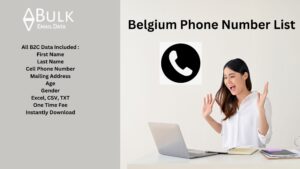8 Different Types of Text Messages & Their Uses in Mobile Marketing
8 Different Types of Text Messages & Their Uses in Mobile Marketing
Blog Article
These days, if you want to grab your customers’ attention, you’ve got to meet them where they spend the most time—on their phones. From scrolling through social media to responding to emails and texts, mobile devices have become an essential part of our daily routines. That’s why mobile messaging has become a must-have tool for businesses looking to stay connected with their audience.
But here’s the thing: not all messages are created equal. With text message open rates hovering around 98%, and far outpacing emails, businesses have a unique opportunity to get their message in front of customers in a way that feels personal and immediate. Whether you’re sending a simple promotional update or an engaging multimedia campaign, text messaging offers a range of options to help you hit your marketing goals.
8 Types of Text Messages & Their Uses
- SMS (Short Message Service): The classic text message, known for its simplicity and widespread use.
- MMS (Multimedia Messaging Service): A step up from SMS, allowing you to send images, videos, and more.
- RCS (Rich Communication Services): A newer, interactive messaging format with rich media and functionality.
- Transactional Messages: Essential for Belgium Phone Number List sending critical information like order confirmations and delivery updates.
- Promotional Messages: Designed to drive engagement and sales through special offers and discounts.
- Conversational Messages: Fostering two-way communication between businesses and customers.
- Push Notifications & In-App Messaging (As Related Types): Although not traditional text messages, these are essential for reaching users who are already engaged with your mobile app.
- Chat Apps (WhatsApp, Viber, etc.): Reaching your audience through the apps they already use for personal communication.
1) SMS (Short Message Service)
Let’s start with the classic: SMS. These text-only messages are probably the most familiar to marketers and customers alike. With a limit of 160 characters, SMS messages are short, direct, and incredibly effective for reaching customers in real-time.
Use Cases for SMS
- Promotional Campaigns: Whether you’re sharing a flash sale or a limited-time offer, SMS is perfect for getting the word out fast. With nearly instant open rates, you can drive engagement and encourage quick action.
- Reminders: For service-based businesses, SMS is a go-to for appointment reminders. Sending customers a quick message the day before an appointment helps reduce no-shows and keeps your schedule running smoothly.
- Two-Factor Authentication: SMS also plays a key role in security. Many businesses use it to send verification codes for two-factor authentication, ensuring that customers’ accounts remain protected.

Best Practices for SMS
- Keep It Short: With just 160 characters, every word counts. Make sure your message is clear and to the point.
- Include a Clear CTA: Whether it’s “Shop Now,” “Call Us,” or “Book Your Appointment,” your call-to-action should be front and center.
- Personalize When Possible: Personalization Cell Phone Number Listing is key to making your messages feel more relevant. A simple “Hi [Customer Name], here’s an offer just for you” can go a long way in boosting engagement.
Contact Us_
WhatsApp : +6584125843
Mail: [email protected]
our product page : https://bulkemaildata.com/product/belgium-phone-number-list/ Report this page